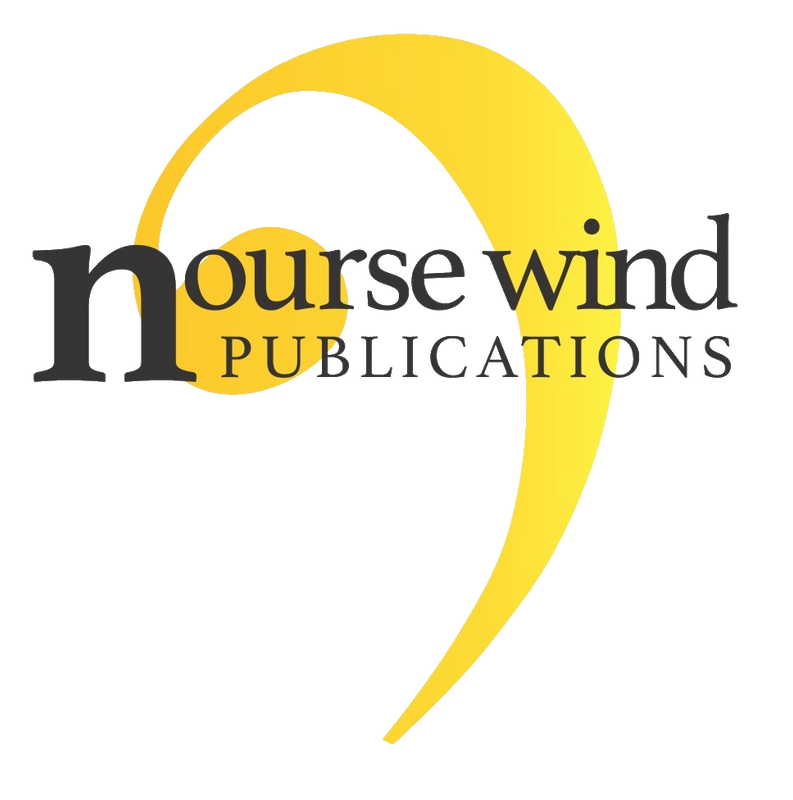J - K
DOUGLAS JAMES
The American guitarist Douglas James has appeared as a classical guitarist throughout the United States as well as in Europe and Mexico. Soundboard magazine has noted his performances to be filled with "appealing intensity and obvious enthusiasm." The Arizona Daily Star described his Bach as "warm and ornate" and his Spanish pieces "downright sexy." A noted proponent of period instrument performance, Dr. James uses 19th century guitars when playing music of the Classical and Romantic periods. In 1992 he was the top prize winner in the Arturo Toscanini Solo Guitar Competition (Italy). He has twice been awarded a National Endowment for the Arts Solo Recitalist Fellowship and has received touring grants from Arts International and several state arts commissions.
Always an active performer, James' recent concert schedule has included engagements at the Oberlin Conservatory, Peabody Conservatory, the Cleveland Institute of Music, numerous American guitar societies, Piccolo Spoleto, and the Stetson International Guitar Workshop. Dr. James has served in the Artists-in-Residence program of the State of North Carolina, and as a touring artist for the Southern Arts Federation and the Arizona Commission on the Arts. He frequently serves as a judge for important guitar competitions, including such events as the Guitar Foundation of America International Solo Guitar Competition and the GOLD Competition at Oberlin Conservatory. As a radio recitalist, James has been featured on National Public Radio’s Performance Today, as well as special broadcasts on the major classical stations of Los Angeles, Chicago, and New York. His critically acclaimed CD of Italian Romantic solo guitar music performed on period guitars was recently followed by the release of a duo CD with Italian guitarist Pasquale Rucco, Early Romantic Music for Two Guitars. Both discs are on the Cala Vista label. Douglas James holds the Doctor of Musical Arts degree from the University of Arizona, where he studied guitar with Thomas Patterson. Dr. James is currently Director of Guitar Studies and Appalachian Guitar Fest at Appalachian State University in Boone, North Carolina.
VICTORIA JICHA (b. 1944)
Victoria Jicha has taught flute at Wheaton College, DePaul University, Northeastern Illinois, and harpsichord at Northwestern University. She is presently organist and choir director at St. David’s Episcopal Church, Glenview, Illinois, and was previously the Editor of Flute Talk Magazine. She attended Oberlin Conservatory and earned the B.M. in Flute Performance at Indiana University and MM. in Church Music at Northwestern University. Her flute teachers include Robert Willoughby, James Pellerite, and Gretel Shanley. She has served as Secretary of the National Flute Association, Advertising Editor of Flutist Quarterly, Local Arrangements Chair for the 1997 NFA Convention, and President of the Chicago Flute Club.
BEN JOHNSTON (1926 - 2019)
Benjamin Burwell Johnston, Jr. (born March 15, 1926 in Macon, Georgia) is a composer of contemporary music in the just intonation system.
Johnston taught composition and theory at the University of Illinois at Urbana-Champaign from 1951 to 1983. Johnston began as a traditional composer of art music before working with Harry Partch, helping the senior musician to build instruments and use them in the performance and recording of new compositions. After working with Partch, Johnston studied with Darius Milhaud at Mills College. It was in fact Partch himself who arranged for Johnston to study with Milhaud (Duckworth 1995, 122). It should be noted that Johnston struggled with just how to integrate just intonation into his compositions for a number of years. Since 1960 Johnston has used, almost exclusively, a system of microtonal notation based on the rational intervals of just intonation. Johnston also worked with John Cage, who encouraged him to pursue the composition of just-tuned music for traditional instruments.
Other works include the orchestral work Quintet for Groups (commissioned by the St. Louis Symphony Orchestra, Sonnets of Desolation (commissioned by the Swingle Singers), the opera Carmilla, the Sonata for Microtonal Piano (1964) and the Suite for Microtonal Piano (1977). Johnston has completed ten string quartets to date. The Kronos Quartet, led by David Harrington, has a standing offer to record all ten quartets, but its label, Nonesuch, has thus far refused the offer. In 2006, the Kepler Quartet issued String Quartets Nos. 2, 3, 4 & 9 for the New World Records label. As of 2006, the Kepler Quartet plan to follow up with String Quartets Nos. 1, 5, 6, 8 & 10, for New World Records. Also as of 2006, New World Records, through its Database of Recorded American Music (an online subscription service for colleges, universities and libraries), plans to make the Kepler release(s) available, along with the rest of New World Records’ catalogue (including Johnston’s Sonata for Microtonal Piano, Five Fragments for voice, oboe, bassoon and cello, Gambit for 12 instruments, Ponder Nothing for solo clarinet, Septet for woodwind quintet, cello and contrabass, Three Chinese Lyrics for soprano and two violins, and Trio for clarinet, violin and cello), to students, faculty and scholars affiliated with a subscribing university, without charge to the individual.
Following on the ideas of Theodor Adorno, Johnston believes that music has the power to influence and even control social trends. Johnston believes that an equal tempered tuning system based on irrational intervals contributes to the hectic hyper-activity of modern life. The wildly beating sonorities of equal temperament are thought to resemble (and perhaps foment) the fast-paced, unmeditative current of present-day Western existence. Many just intervals lack the sharp vibrancy of irrational intervals (and higher-order rational intervals) and thus are sometimes felt to convey an affect of stasis and meditative calm. Indeed, cultures whose tuning systems draw heavily on purely tuned intervals (e.g., North Indian classical music) tend to value meditative social attitudes more greatly than in the West.
Johnston has received many honors, including a Guggenheim Fellowship in 1959, a grant from the National Council on the Arts and the Humanities in 1966 and two commissions from the Smithsonian Institution.
An interview with Ben Johnston can be found in Duckworth 1995. Heidi von Gunden has published a monograph on the composer (von Gunden 1986), and Bob Gilmore has edited the composer’s complete writings (Johnston 2006).
Johnston’s students include Thomas Albert, Manfred Stahnke and Kyle Gann.
MATT JOHNSTON (b. 1982)
Originally from Tampa, Florida, Matt Johnston graduated from the Florida State University with a Bachelor of Arts degree in music and a certificate in bassoon performance. While at Florida State, he also studied the organ, flute, clarinet, and piano. Matt is a regular in the Seattle theatre scene and performs on all the woodwinds in addition to piano and organ.
For many years, Matt self-published his arrangements and transcriptions under Malejo Publications. Many of his transcriptions for clarinet choir have been recorded by the University of Florida Clarinet Ensemble and can be heard on multiple CDs. In 2011, he became the owner of ALRY Publications, a sheet music publishing company established in 1981, originally based in Charlotte, North Carolina. He now enjoys spending his time working with the 200+ composers and arrangers represented in the catalog.
Outside of music and publishing, Matt enjoys taking advantage of all the outdoor activities the beautiful Pacific Northwest has to offer and looks forward to future travels around the world with ALRY. Among Matt’s many accomplishments, he enjoys notoriety as an origami artist and some of his models are even featured in Meenakshi Mukerji’s "Ornamental Origami: Exploring 3D Geometric Designs."
ADAH TOLAND JONES
Adah Toland Jones, is Professor of Flute at Texas State University, Principal Flute with the Austin Lyric Opera and the Victoria Bach Festival Orchestra and plays frequently with Austin and San Antonio Symphonies. She holds B.M. and M.M. degrees and a Performer's Certificate from the Eastman School of Music and a Doctor of Arts degree from Ball State University where she was awarded the Distinguished Alumni Citation in 2000. At Texas State, she was awarded the University Presidential Award for Excellence in Scholarly and Creative Activities and was runner-up from the College of Fine Arts and Communication for the Presidential Award for Excellence in Teaching. Students from the flute studio have consistently been winners of the annual Concerto Competition and the flute choir has performed throughout the state and at the National Flute Association Convention. Several students have auditioned and been chosen for the National Collegiate Flute Choir every year since its inception at the convention in New York City in 2009.
Dr. Jones has been active with the National Flute Association having performed at numerous conventions, conducted the High School and Professional Flute Choirs, been a member of the Pedagogy Committee, Coordinator of the Professional Flute Choir and was a screening judge for various events. Her principal teachers include Patricia George, Joseph Mariano, Paul Boyer, and Jean-Pierre Rampal.
GORDON JONES (b. 1947)
Gordon Jones is a music educator, composer, and world music practitioner. He has worked extensively throughout Europe, most recently in Scotland, where he contributed considerably to school music curriculum development. He recently moved to Texas, where he is pursuing a variety of musical endeavors, including composing, directing musical theater, conducting workshops for music educators, and teaching music theory.
DANA JORAS (b. 1989)
Dana H. Joras is a flutist, composer, and soccer referee living in the Chicago area. She is a recipient of the Musicians Club of Women Farwell-Trust Award, a winner of the Jonathan Myall Piccolo Prize and was awarded second prize at the 2013 British Flute Society Young Artist Competition. She graduated with Distinction from the Royal Academy of Music in London, where she studied with Samuel Coles, Kate Hill, and Patricia Morris. She completed her BM in Flute Performance at DePaul University’s School of Music in Chicago under Mary Stolper.
As a composer, Dana particularly enjoys writing music for her own performances on flute and piccolo. Her music is very imaginative, often based on characters and stories that she creates. Dana has composed pieces for performance by the Royal Academy of Music Flute Ensemble and by her own chamber ensembles. Dana’s composition, Carnival Pieces, was selected as the winner of the 2013 National Flute Association Flute Choir Composition Competition. Her piece for solo piccolo, Quirks of Quarks, was awarded 2nd place in the 2013 International Piccolo Symposium’s Jan Gippo Piccolo Composition Competition. Dana is also an accomplished soccer referee and hopes to eventually referee at the FIFA World Cup.
ROBERT JORDAN (b. 1964)
Robert D. Jordan, bassoonist with the United States Air Force Bands, presents recitals, master classes, and is a frequently featured soloist on tours throughout the United States and Europe. He is a winner of the coveted Colonel Finley R. Hamilton Outstanding Military Musician Award, as well as being a former Airman of the Year, Non Commissioned Officer of the Year, and an Air Force Sergeants Association Bandsman of the Year winner. As an orchestral bassoonist, he has performed with the Atlanta, Baton Rouge, Baton Rouge Opera, Columbus, Dayton Philharmonic, Fox Valley, Greenville, Macon, Milwaukee, Opera Columbus, Saint Louis Philharmonic, Savannah, Springfield, and West Virginia Symphony Orchestras among many others. He holds degrees from Louisiana State University, the University of Michigan, The Ohio State University and a Performer's Certificate from UW-Milwaukee Institute of Chamber Music. His major teachers include L. Hugh Cooper, James Keyes, William Ludwig, John Patterson, Robert Thompson, Christopher Weait, and Robert Williams. He also studied with Leonard Hindell, K. David Van Hoesen, Stephen Maxym, John Miller, Sol Schoenbach, Milan Turkovic’, Charles Ullery, Arthur Weisberg, and William Winstead. His teaching appointments have included the University of Dayton, Denison University, Heidelberg College, The Ohio State University, Tiffin University, UW-Milwaukee, Sinclair Community College, and presently at Southern Illinois University-Edwardsville (SIUE) and Southwestern Illinois College(SWIC). He is a two time winner of the Milwaukee Civic Music Competition and five time semi-finalist in the Fischoff National Chamber Music Competition. He also served as Vice President and Competition Chair for Chamber Music Yellow Springs from 1999 until 2004. He has commissioned and performed works for bassoon by Daniel Baldwin, Stephan Brown, Andrew Callo, David Campo, Bill Douglas, Damian Montano, David Ott, and Dean Smith. Dr. Jordan is the CEO of Weisberg Systems, LLC where he coordinates the further development of innovations for bassoon inspired by Arthur Weisberg.
TOM KENNEDY (1953-2007)
Tom A. Kennedy, Jr. was awarded the Doctor of Musical Arts in Instrumental Conducting from the University of Miami (1986), Master of Music in Flute Performance from The Pennsylvania State University (1980), and Bachelor of Music Education from Indiana University-Bloomington (1976). He has served as Director of Instrumental Music at North High School in Evansville, Indiana, and Director of Bands/Flute Instructor at Cameron University in Lawton, Oklahoma. He has played piccolo with the Owensboro (KY) Symphony Orchestra, and principal flute with the Lawton (OK) Philharmonic and Century Village-East (Deerfield, FL) Orchestra. His composition Hsiang-tzu for Quarter-tuned Flute Choir was a prize winner in the 1975 National Flute Association composition contest. Currently, Tom is Assistant Professor of Music at Palm Beach Atlantic College where he conducts the College/Community Orchestra. An active performing schedule includes the Tropical Winds Wind Quintet and Sinfonia Virtuosi di Florida Chamber Orchestra (Ft. Lauderdale, FL).
TOD KERSTETTER (b. 1963)
Clarinetist Tod Kerstetter serves as Professor of Clarinet, member of the resident Konza Wind Quintet, and Music Program Webmaster in the School of Music, Theatre, and Dance at Kansas State University. He holds degrees in clarinet performance from Furman University (B.M.), Indiana University (M.M.), and the University of Georgia (D.M.A.). His primary clarinet teachers include James Campbell, Robert Chesebro, Henry Gulick, Theodore Jahn, and Richard Waller.
In his career Tod has performed on clarinet, E-flat clarinet, bass clarinet, and soprano, alto and tenor saxophone with a variety professional ensembles including the American Wind Symphony, the Charleston (SC) Symphony, the Evansville (IN) Philharmonic, the Filarmónica del Bajío of Guanajuato, Mexico, the Kansas City Symphony, the Nashville Chamber Orchestra, the Nashville Symphony, the Owensboro (KY) Symphony, the Spoleto Festival Orchestra (Italy), the Savannah Symphony, and the Topeka (KS) Symphony. Tod enjoys traveling, and has performed internationally in Australia, Austria, Finland, Germany, Hungary, Italy, Mexico, New Zealand, the Netherlands, Norway, Russia, Slovenia and Sweden. He currently serves on the Executive Board of the International Clarinet Association as Treasurer, and also serves as the I.C.A.’s Kansas State Chair.
Tod has recently been involved in several commissioning projects for new music for clarinet, including recent compositions by David Maslanka, Mauricio Murcia, Kevin Walczyk, and Craig Weston. He is also active as an arranger and editor, with a special interest in arranging music for clarinet choir—ranging in style from early Classical to modern pop and rock.
GEOFFREY KIDDE (b. 1963)
Composer and Flutist Geoffrey Kidde has written music for a wide variety of media: two operas; an orchestral song cycle; an electronic tape mime theater work based on Kafka’s Metamorphosis; film scores; works for instruments with electronic tape; and orchestral, vocal, choral and chamber music. Mr. Kidde was commissioned by the National Flute Association to compose a work for the final round of the 2002 National Flute Association Convention’s High School Soloist Competition in Washington, D.C. Another commission came from Hofstra University New Music Ensemble (Pat Spencer, Director), which resulted in The Spirit of Liberty (2002) for Soprano, Flute, Alto Saxophone, Violin, 'Cello, Piano and Two Percussionists. A number of his recent works have been performed at Manhattanville College, including Two Songs from John Donne (2009) for women's choir and piano, and Manhattanville in Spring for Soprano and Piano. This last was performed at the inauguration of the college's president, Molly Smith.
As a flutist, he is known for innovative programming and vibrant musicianship. He performed his work Samsara (2006) for solo flute and electronics at the College Music Society 52nd Annual Convention in 2009. He performed his own Electric Blues at the 2005 National Flute Association Convention in San Diego. The Electric Expressions Concert at the 1999 Bar Harbor Music Festival featured Kidde performing George Crumb’s Vox Balanae (Voice of the Whale) (1972) for electric flute, electric ‘cello and electric piano, and Thea Musgrave’s Narcissus (1986) for flute and digital delay. This concert also included Kidde’s own Waves (1999) for ‘cello and computer generated sounds. Nan Lincoln, in The Bar Harbor Times, wrote that “Mr. Kidde’s flute was an absolute joy to hear with its distinct yet liquid phrasing.” In 2000, the Bar Harbor Music Festival commissioned and presented the premiere of Geoffrey Kidde’s Shooting Star, written for the Stuart Marrs Percussion Ensemble.
Geoffrey Kidde is currently an Associate Professor of Music at Manhattanville College, where he teaches Music Theory and Music Technology. He has presented flute recitals at Manhattanville College, North Carolina School of the Arts, University of Bridgeport, and the Third Street Music School Settlement in New York. He has also taught music at Hofstra and St. John’s Universities, Queensborough Community College (CUNY), the Third Street Music School Settlement, the University of Bridgeport, and Columbia University’s Electronic Music Center. From 1991 to 1993 he served as Executive Director, and from 1993-95 as President of the League of Composers/ISCM, U.S. Section. In 1995 he received his D.M.A. from Columbia University, where he studied with Mario Davidovsky, Chou Wen-chung, and George Edwards, and in 1988 a M.M. from New England Conservatory, studying there with John Heiss and Malcolm Peyton. His flute teachers include Robert Dick, Jayn Rosenfeld, Patricia Spencer, and Robert Stallman. (March 2011)
NORA KILE (b. 1949)
Nora Kile, a Chattanooga native, earned her B.M. and M.M. in flute performance from the CollegeConservatory of Music of the University of Cincinnati, where she studied flute with George Hambrecht and flute choirs with Robert Cavally. She is the flutist for the New Art Trio and second flute/piccolo with the Chattanooga Symphony and Opera Orchestra. She is head of the flute faculty for the Cadek Conservatory of Music at the University of Tennessee at Chattanooga, and is on the adjunct faculties of Southern Adventist University in Collegedale, TN, and Bryan College in Dayton, TN. An active member of the National Flute Association, Kile was the Exhibitor’s Showcases/Exhibitor’s Concert Coordinator from 2004 to 2008. She has served on panels for flute choir organizations and arranging at the 1996 and 1999 NFA conventions and has conducted flute choirs at several of the conventions as well as led workshops around the country. She is a member of The National Flute Choir, and has assisted with the flute ensembles classes at the Wildacres Flute Retreat in North Carolina since 1986. She has several chamber trio and flute choir arrangements published by ALRY Publications and other publishers. In her spare time, Kile enjoys boating, water skiing, and scuba diving with her husband, and playing the harp, her musical “midlife crisis.” She and her husband have been adopted by their four cats, Merlin, Dusty, Blaze, and Skye.
JUNE KIRLIN (1910-2013)
A resident of Eugene, Oregon, June Kirlin was born in Columbus, Wisconsin, in 1910. She studied music at Drake University (Iowa). Later she studied piano and organ with Robert McDonald and Louis Webb. Studies in Composition were done with Home Keller at the University of Oregon.
Ms. Kirlin composed for the piano, organ, chamber ensembles, symphony orchestra, and voice. In addition to composing, she also served as conductor of the Emmet County (Iowa) Little Symphony Orchestra, was music director at WMT (radio) in Cedar Rapids, and served as organist and choir director in numerous churches.
Published by several music companies, her music has been described as “having a tonal and accessible harmonic idiom while being at the same time clearly 20th century in flavor and neoclassical in style and structure.” (Karen Kammerer, music critic – Eugene Register Guard, March 1994). June Kirlin’s family, many of whom are also musicians, included her husband, Warner, two children, many grandchildren and great-grandchildren, as well as one great-great-grandchild.
WILLIAM KNEZOVICH (b. 1956)
William Knezovich received a Bachelor of Music degree from the University of Wyoming and Master of Arts degree from the University of Denver, where he was also an instructor of music history. He studied composition with David Diamond and Allen Willman. He has also received a master of Divinity degree from Pacific Lutheran Theological Seminary and has performed around the San Francisco Bay area. As of 1997, William lives in Fresno, California, and teaches bassoon at Fresno Pacific University. He has also taught music history, music appreciation, and theory there. In addition to performing with the Fresno Philharmonic, he is bassoonist with the Winds of the San Joaquin Wind Quintet and Moment Musical. He is also pastor of Our Saviour's Lutheran Church, ELCA, in Fresno.
LEWIS A KOCHER (b. 1958)
Lewis A. Kocher lives in western New York where he is Music Director for the First Presbyterian Church of Westfield, as well as annual summer season Music Director/composer for Jesse Hurlbut Memorial Church on the grounds of the Chautauqua Institution. As new age performer "Michael Crowtower", Kocher tours England every year, visiting medieval-era churches to perform concerts of his organ music. As Michael Crowtower he also performs a yearly piano concert of his music at the Chautauqua Institution in New York. An active composer, he has written a number of commissioned chamber works for woodwind, and currently has three works in ALRY's catalog. For more information, you may visit his website: www.crowtower.com
KENNETH KREUZER (b. 1979)
Dr. Kenneth E. Kreuzer, a native of Webster, New York, studied composition with Dr. Mark A. Taggart and Dr. Robert Carl. His pieces have been performed throughout America, China, and Taiwan. He has had works commissioned by Dr. Christine Gustafson, April Owens, Dr. Harold Reynolds, Dr. Nathan Williams, the Ithaca College Trombone Troupe, The Langley Winds, and the Governor's School for the Arts in Norfolk, Virginia.
Kreuzer's music has been performed at the American Composers Concert Series, East Carolina Flute Symposium, Eastern Trombone Workshop, Hampton Roads Flute Faire, Fruhling Posaunen Festival, International Trombone Association Conference, Low Brass Festival, National Flute Association Convention, Picasso Sounds of Support, and the Williamsburg Arts Festival. A Night in Dublin has been recorded on the Tidewater Winds CD Series and Hastings College, The Tradition Continues.
THOMAS KURAS (1950-1997)
Thomas M. Kuras was born in Detroit, Michigan, on December 21, 1950. Profoundly intelligent and musically talented, he was a church organist by the age of twelve. Difficulties at home led him to immerse himself in music, and by the age of twenty he was an accomplished musician in every sense of the word. Feeling that university study offered him little, he left college without a degree; nonetheless, in 1970 he passed the examination to become a Fellow of the American Guild of Organists, then the youngest person ever to have done so.
In the early 1970s he was Director of Music at Blessed Sacrament Cathedral in Detroit and in 1974 he became Director of Music at Saint Joseph's Church (Detroit) where he remained until his death from cancer on July 26, 1997. He founded and was artistic director of Chamberworks, a concert series, and the choral society, Detroit Philomusica.
Kuras was a keyboard virtuoso and a gifted improviser. He was expert in music history, performance practice, musicology, vocal technique and liturgy. His grasp of music literature was far-reaching, and few owned as much of it. At Saint Joseph's Church, his program continued that parish's tradition of orchestral Masses, including not only Mozart, Haydn and Schubert, but Rheinberger, Benn and others as well.
He composed a great deal of music, much of it for the Church. His choral music was often intended to fill gaps in the available literature, particularly for the Novus ordoMass of 1970; he wrote, for example, dozens of choral Gospel Acclamations. His organ preludes reflect his sense that many hymns used today are not well represented in the organ chorale literature and certainly not in forms usable in liturgy. For use at festive services he set hymns and carols for chorus, congregation, orchestra and organ.
There are currently no products in this collection.









